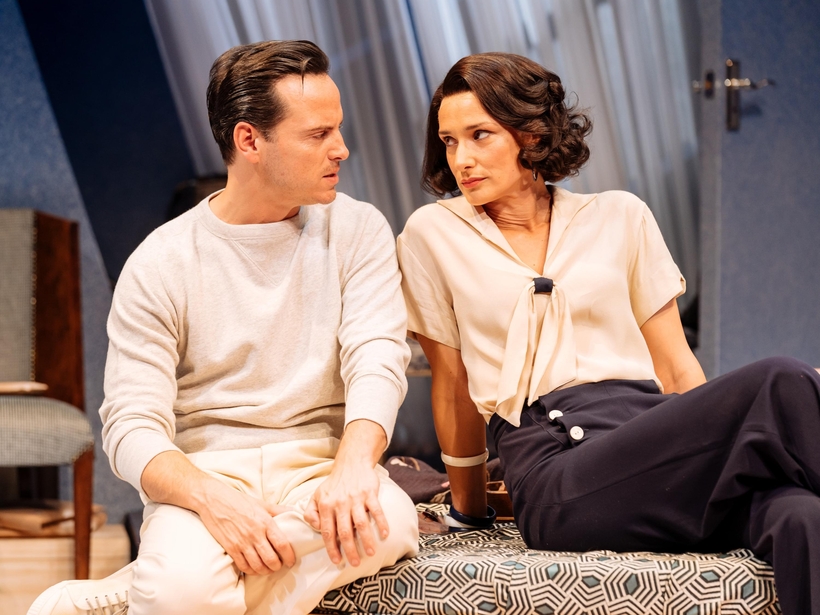All things considered, England’s songwriter, singer, playwright, actor, and director Noël Coward had every reason to purr at the reception of his feather-light backstage comedy Present Laughter. The 1942 premiere, which Coward starred in as well as directed, proved boffo box office, and no wonder. As the 40-year-old matinee idol Garry Essendine—anagram of “neediness”—he was more or less playing himself.
Over the decades, a who’s who of transatlantic dandies from Douglas Fairbanks Jr., Peter O’Toole, and Ian McKellen to Frank Langella and Kevin Kline have followed in Coward’s footsteps to unflagging merriment. Yet for Peter Hall, midcentury Britain’s theatrical guru extraordinaire, the jests rang hollow. What a wonderful play Present Laughter would have been, Hall wrote shortly after Coward’s death in 1973, “if—as Coward must have wanted—all the love affairs had been about homosexuals.”
A pre-pandemic London revival starring the Dublin-born Andrew Scott at his starriest finally broke the mold, sort of. Filmed live at the Old Vic in 2019, Matthew Warchus’s artful production morphs a business associate’s wife on the prowl named Joanna into an identically inclined husband named Joe (the Uomo Vogue-ready Enzo Cilenti), and presto!
Apart from a few switched pronouns, the script hasn’t been touched. So what if scattered false notes crop up in Joe’s love talk, his rant the morning after, and his spurned-diva exit? But the no-fault, no-comment bisexual persona for Garry seems a less credible contrivance than the plain-vanilla straight persona Coward gave him in the first place. What’s more, the AC/DC headcount skyrockets from zero to four, which depending on a viewer’s life experience might strain disbelief. Whatever. As Terence, the Roman master of comedy had it, Nihil humanum alienum: naught human is foreign.

Correcting the social constructs of yesteryear turns out to be tricky business. Until the sea change of the Swinging Sixties, British law classified intercourse between consulting male adults in private as a criminal offense, and theatrical productions were subject to censorship by the Lord Chamberlain of the Royal Household for “the preservation of good manners, decorum, or of the public peace.” No sex please! We’re British!
Hungry for fame and fortune, Coward knew the rules and heteronormalized his story lines without a second thought. But there was no disguising his sensibility, and he frequently got away with murder. Consider, in Present Laughter, the callow playwright Ronald Maule (Luke Thallon, jumping out of his skin), whose Garry worship is as blisteringly erotic as it is boyishly chaste.
Ah, the price a man pays for the star on his dressing-room door! Between concupiscent fans and his vampire entourage, Garry never knows a moment’s peace. Scott makes his entrance not in Coward’s regulation pajamas but still in his Captain Hook getup from the previous night’s costume party, suggesting that his home lies in Neverland. In due course Scott’s portrait reveals that Garry’s true avatar isn’t Hook at all, but the Lost Boys’ leader Peter Pan. As the stakes escalate, his bravura fusion of high camp, slashing tirades, and celestial physical comedy flashes glimpses of sadness, isolation, and insecurity that are not quite such a joke. Like Twelfth Night, from which Coward lifted the play’s title, Warchus’s show closes on a melancholy note.
Present Laughter is available for streaming on National Theatre at Home
Matthew Gurewitsch writes about opera and classical music for AIR MAIL. He lives in Hawaii

